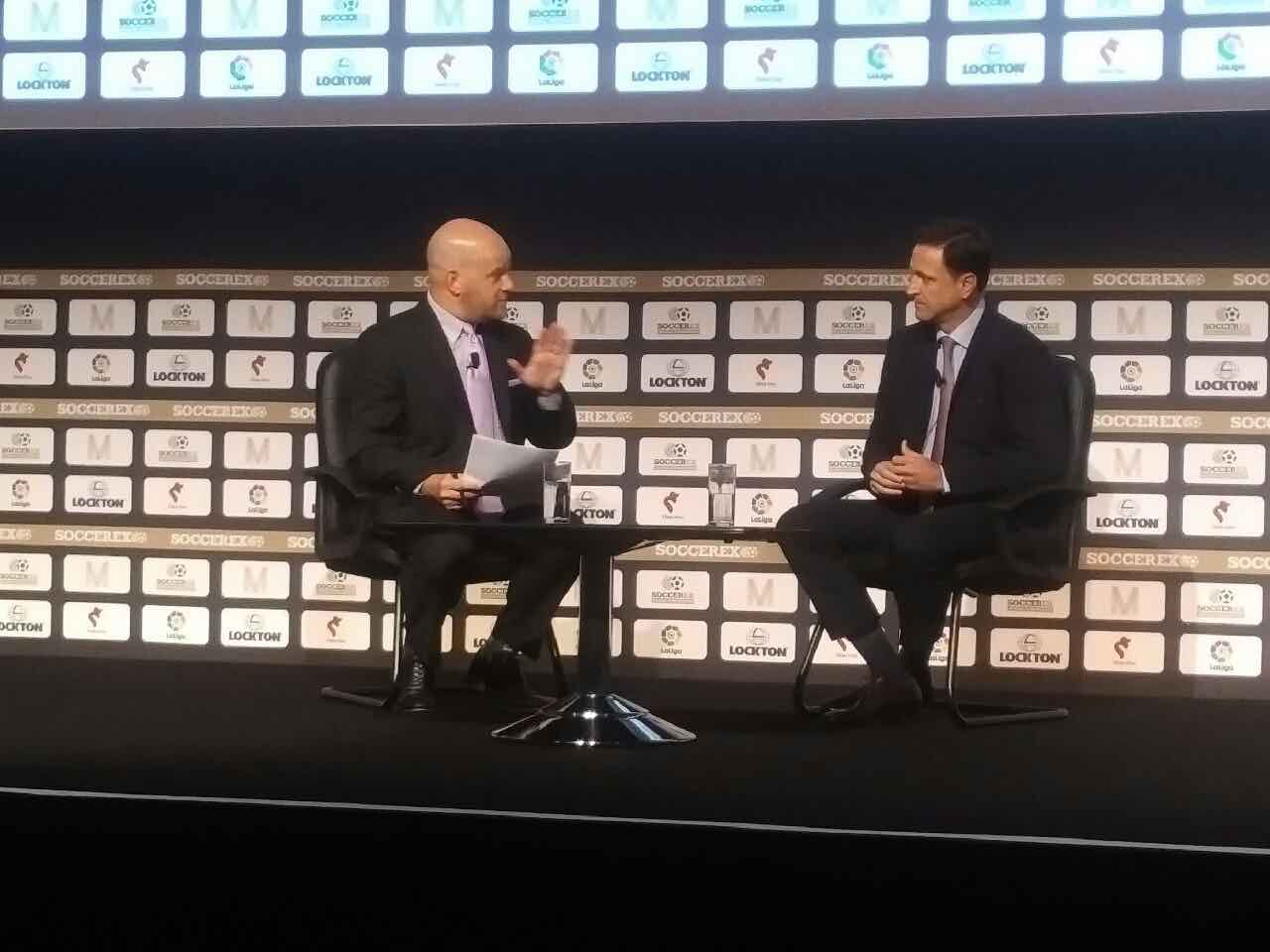By Paul Nicholson at Soccerex, Manchester
September 5 – CONCACAF wants three automatic places at the 2026 World Cup if the US, Mexico and Canada bid wins the hosting rights, said general secretary Philippe Moggio (pictured right). He also said that the confederation’s blue riband Gold Cup may be expanded to 16 teams in future editions as well as potentially being hosted outside the US.
Speaking at the Soccerex convention in Manchester, Moggio said that the confederation was “playing a supporting role helping our three member associations put this bid together. 2026 will be 48 teams and we really believe it is our time.”
The region last hosted a World Cup in the US in 1994. “It has been 32 years,” said Moggio. “Since then it has been three times in Europe, twice in Asia, one time in Africa and once in South America…it is a good opportunity for the region to think about where football will be in the region in 2026.”
Pointing out that this is a great opportunity for the three countries to showcase themselves, he also said that each of the countries could host the World Cup on their own, but that combining “shows what the region is really about”.
“With an expanded World Cup it would be natural for the three main countries to have an automatic spot.” CONCACAF currently has just three automatic spots plus a place off against and Asian Football Confederation nation.
With a slightly nervous world looking at the effect a Donald Trump administration might have on the world’s highest profile sporting event (even though Trump will not be in power in 2026), Moggio dismissed his influence as negligible saying that the administration had been very supportive concerning the bid and will “get behind what it can do for the country.”
CONCACAF’s golden Cup
Moggio, explaining the development of the region’s competitions, highlighted the bi-annual Gold Cup as “the engine of development for the region. It is where it (CONCACAF) earns most of its revenue.”
The 2017 edition, won by the US in the US this summer, broke all records with attendances of more than 500,000, record viewing figures in the key US market for Fox and Univision, and a record 11 sponsors “activating heavily”.
“We potentially may increase the Gold Cup to 16 teams,” said Moggio, pointing out the success of first time participants Curacao and French Guiana and the advantages to more of the confederations 41 members via a qualification process that gives more chances to Caribbean nations in particular.
Speaking about the success of the hosting of the Copa America in the US in 2016, Moggio said that a strong relationship with CONMEBOL had been established and that the two confederations were looking at ways to collaborate in the future. “There is active dialogue to create a combined Copa America like 2016. But now are focus is on 2019 and 2021 Gold Cup.”
An end to CONCACAF’s bad old days
The cloud of CONCACAF’s corrupt past still lingers over the confederation as reforms are on-going, but there is a clear onward movement as more competitions are played and playing opportunities are gradually expanded.
Moggio points out, as president Victor Montagliani has done before, that “CONCACAF was a victim in the process. We have worked very closely with the Department of Justice in terms of putting in place our reform process. That is still on-going.” Though when asked Moggio said that the confederation was certainly not an arm of the US justice department focussed on US national interests.
Asked about the relationship with its somewhat outcast Caribbean federations, Moggio said that $1 million was being invested in the region and that it was “absolutely working with the Caribbean Football Union (CFU).”
The CFU has had its CONCACAF funding withdrawn as the confederation took organisational control of all its competitions in the region and set up a new office in Jamaica.
The CFU has also not received its promised FIFA funding. FIFA president Gianni Infantino had previously promised that sub-regional bodies would receive central funding from FIFA. In the CFU’s case that has not been forthcoming, widely perceived as being punishment for a bulk of the Caribbean nations not supporting Infantino in his election to the FIFA presidency. Moggio said that CONCACAF would work with the CFU to help chase that promise down. With the Caribbean block still holding the political voting power, if not any purse strings, the release of money will almost certainly come with strings attached – the new/old FIFA way.
Contact the writer of this story at moc.l1746778455labto1746778455ofdlr1746778455owedi1746778455sni@n1746778455osloh1746778455cin.l1746778455uap1746778455

